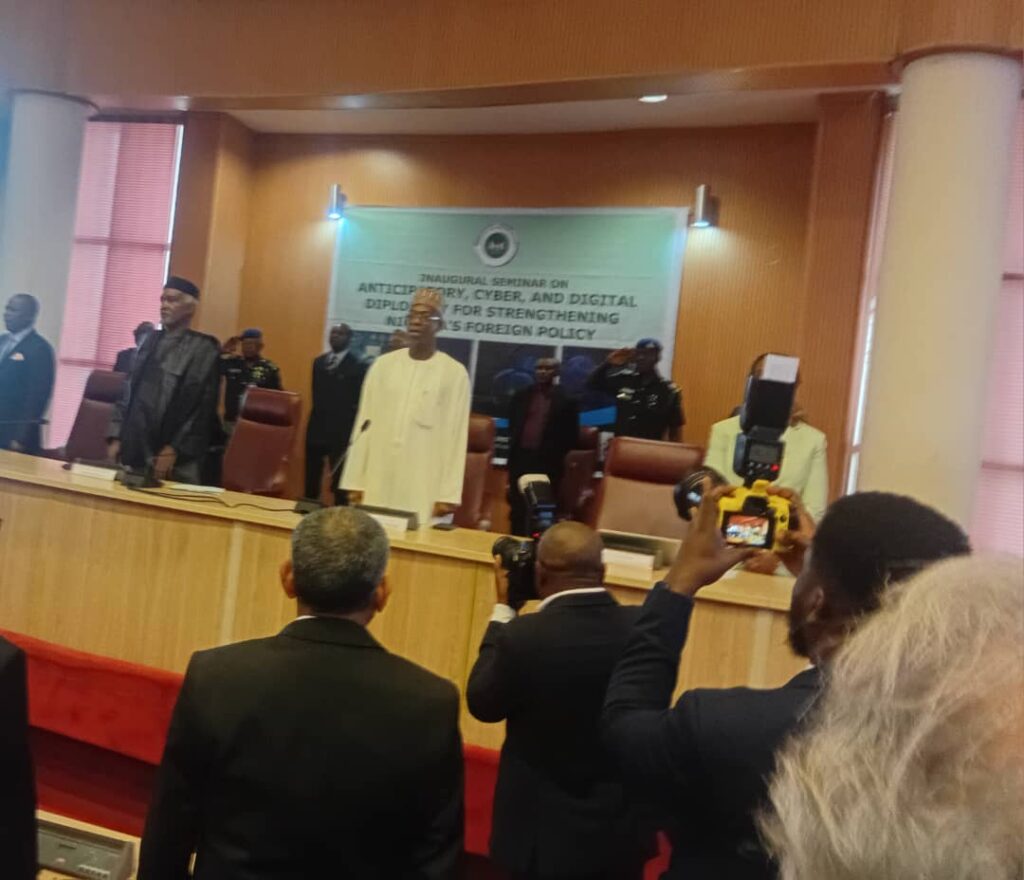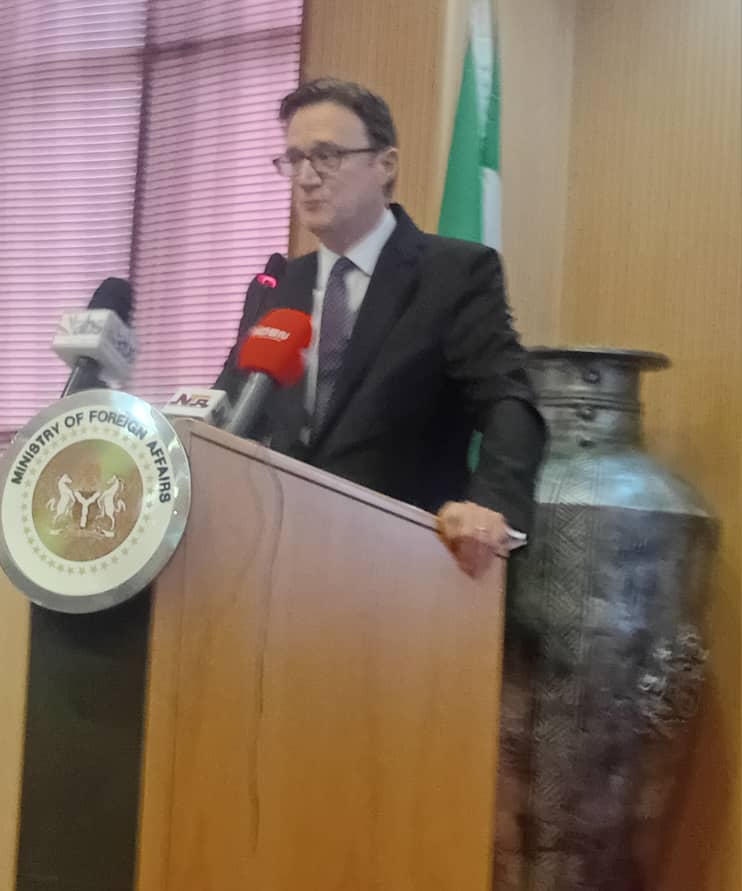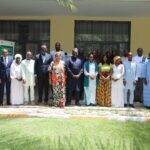Nigeria Convenes Stakeholders, Sets National Priority Target to Reposition Harnessing Future Digital Diplomacy.
By Raymond Enoch.
In a decisive move to reposition Nigeria in the global digital landscape, the Ministry of Foreign Affairs today convened a high-level stakeholder meeting in Abuja today, to prioritize cyber diplomacy as a core element of national foreign policy. The event, held at the Foreign Affairs Ministry’s headquarters, brought together senior government officials, diplomatic partners, and thought leaders in cybersecurity and international law.

Declaring the forum open, the Minister of Foreign Affairs, Ambassador Yusuf Maitama Tuggar, welcomed the initiative, describing it as a timely response to a rapidly changing global order defined by disruptive technology. He stressed that Nigeria would not remain a bystander as the digital revolution reshapes diplomacy, governance, and security.
“We are living through a transformation of disruptive technology that is impacting diplomacy in ways never seen before,” Tuggar said. “Nigeria must be anticipatory. Cyber and digital diplomacy must not only be sustained but mainstreamed as a priority.”

The Minister also disclosed the formal establishment of a National Cyber Diplomacy Unit within the Ministry of Foreign Affairs. The unit, he said, would serve as a strategic hub for Nigeria’s engagement on cyber issues globally, reinforcing the country’s sovereignty and strategic interests in an increasingly digital world.
Also speaking at the event, the British High Commission Ambassador, Richard Montenegro, commended Nigeria’s leadership in initiating the conversation around cyber diplomacy, describing it as both timely and strategic. He reaffirmed the United Kingdom’s commitment to partnering with Nigeria in strengthening its cyber security architecture.
“Cybersecurity is one of the defining challenges of our time,” Ambassador Montenegro said. “The British Embassy is pleased to collaborate with the Nigerian government on this important project. International cooperation is vital, and Nigeria’s leadership in this space is critical.”
The keynote address was delivered by Professor Nnenna Ifean-Ajufo, an internationally recognized authority on digital governance and cybersecurity law. She described the subject of cyber diplomacy as urgent and unavoidable, warning that nations must no longer treat the digital space as secondary to traditional diplomatic concerns.
“Nigeria is taking its place at the heart of anticipatory, cyber and digital diplomacy,” Professor Ifean-Ajufo said. “It is time to lead, not follow. Strengthening our foreign policy now depends on how effectively we navigate digital sovereignty and cybersecurity. We must not only respond—we must be ahead of the curve.”
Professor Ifean-Ajufo lauded the Ministry of Foreign Affairs for its foresight, noting that the institutional framework being established must be matched with actionable policies, regional cooperation, and global engagement.
Today’s event signals a turning point for Nigeria’s diplomatic architecture. With threats to national security, economic stability, and political integrity now extending deep into cyberspace, the government’s recognition of cyber diplomacy as a strategic imperative places Nigeria among a growing number of nations redefining sovereignty in digital terms.









